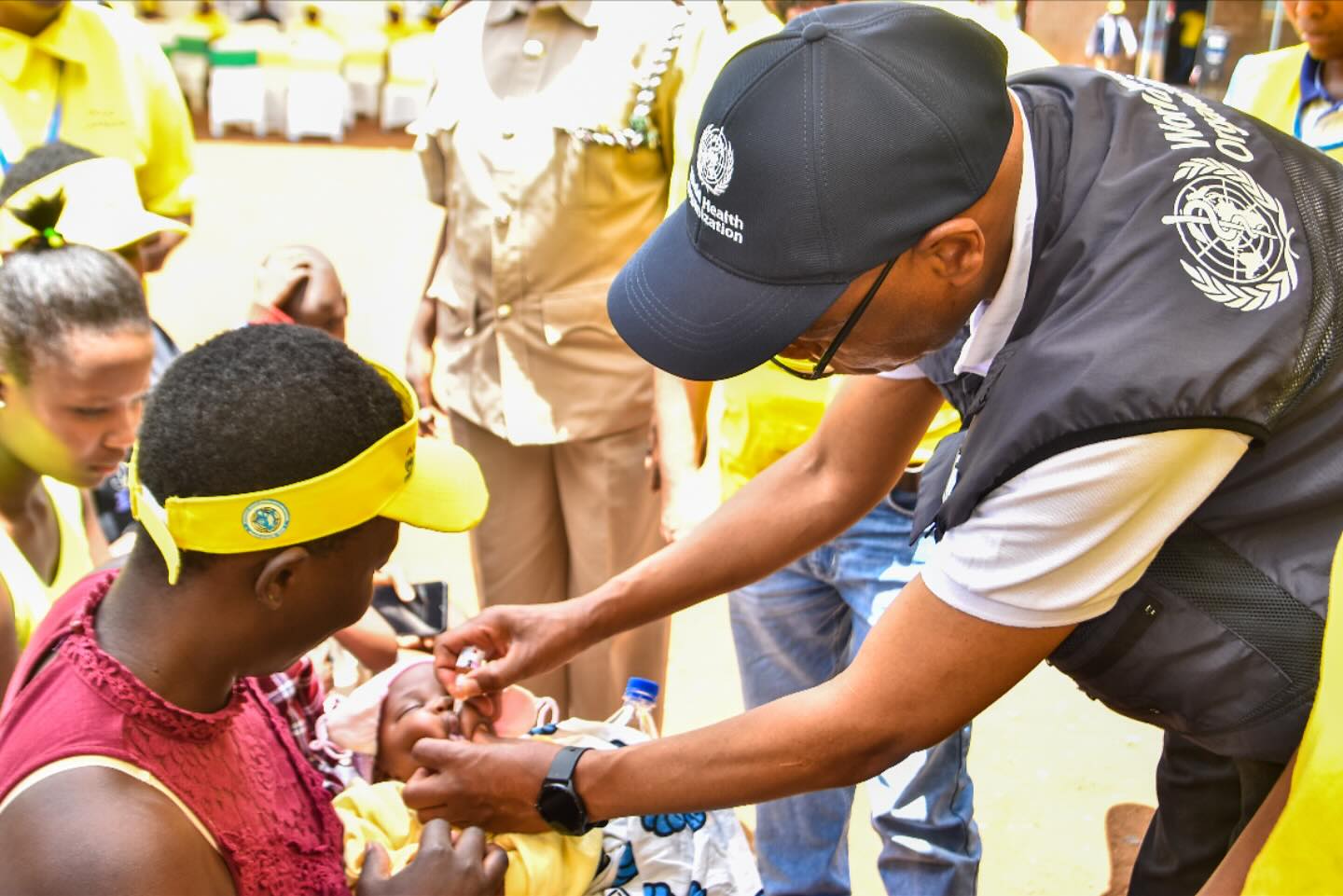

The Ministry of Health has clarified that the deaths of two children after the polio vaccination drive which was conducted in the country from October 2 to 6, 2024 was not related to the vaccine.
This comes as the ministry rolled out another round of polio vaccination drive which started on Saturday, November 9 and is expected to go on until November 13.
The ongoing drive targets the nine high-risk counties of Busia, Bungoma, Trans-Nzoia, West Pokot, Turkana, Nairobi, Kiambu, Machakos, and Kajiado.
During the October vaccination drive, a small fraction of parents and guardians had expressed concern over the safety of vaccines saying their children had exhibited adverse reactions after the vacation.
This prompted the Kenya National Vaccine Safety Advisory Committee (KNVSAC) to launch investigations into the reports.
The committee in a report on Friday said 23 reported cases were investigated, 16 were non- serious ranging from generalised itchy rash, fever, conjunctivitis, body rashes, abdominal pain, diarrhoea amongst others.
Seven of the reported cases were serious presenting with generalised red and sometimes itchy bumps in the skin and fever, weakness of the lower limbs, convulsions, diarrhoea and vomiting and herpes zoster.
The committee in their report said two of the reported cases unfortunately resulted in death.
The ministry has affirmed that vaccines administered in the country are safe, noting that 18 of the cases investigated were coincidental due to underlying or emerging health conditions unrelated to the vaccine.
Health DG Patrick Amoth has assured Kenyans that all vaccines given by the ministry, including the polio vaccine, are safe and effective in protecting our children against vaccine-preventable diseases.
“Vaccines are designed to stimulate an immune response in the body against infectious diseases, and this reaction inevitably carries a small attributable risk to the health of a minority of children. While mild side effects may occur, these often resolve quickly,” Amoth said.
“The two deaths are not related to polio at all. The vaccine is safe, is tested, it undergoes stringent regulatory process before the approval and therefore the safety is assured,” he said.
According to NVSAC chairperson Ezekiel Wafula, the cases of adverse reactions were individually investigated by the committee following the rules set out by the World Health Organisation.
Wafula said none of the cases was found to have any direct link with the polio vaccine that had been administered.
“Many times when people die as we may be aware we are quick to blame an occurrence, we were careful to be sure that if there is a link we establish it,” Wafula said.
“As we examined all the evidence and looked at the stories carefully that had been brought to us, we didn’t find any direct relationship to the polio vaccine. To blame a vaccine there are usually procedures and methods that are established to be able to confirm whether the vaccine is related or not.”
Polio is a highly infectious and debilitating vaccine-preventable viral disease with the potential to cause paralysis and even death in a matter of hours among young children who are not fully vaccinated.
While there is no cure for Polio, the disease can be prevented by receiving the Oral Polio Vaccine (OPV) and the Inactivated Polio Vaccine (IPV).
All Kenyan children under the age of 5 years are expected to be up to date with childhood vaccines where they receive Polio vaccine at birth, 6 weeks, 10 weeks, and 14 weeks as per the routine immunisation schedule.
In the event of an outbreak, the polio vaccine is given to all children 0-59 months irrespective of their previous vaccination status.







